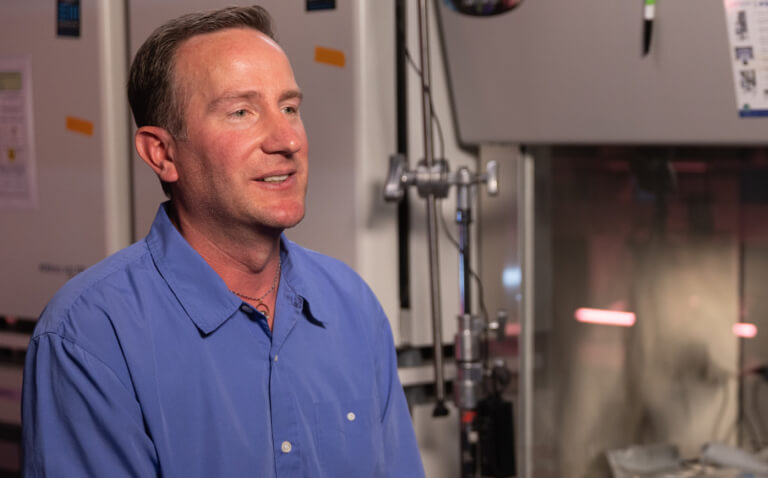August 28, 2024
Understanding Hidradenitis Suppurativa (HS)
The purpose of the immune system is to defend the body from infections and to keep us healthy. However, sometimes it doesn't function properly and can mistakenly attack the body. This can lead to immune-mediated conditions, also known as autoinflammatory or autoimmune diseases. An example of this is hidradenitis suppurativa, or HS, a chronic, inflammatory skin condition that causes painful bumps to form. HS can worsen over time and can make movement, even daily activities, difficult or impossible due to pain. HS may also impact relationships with colleagues, friends and loved ones and one’s mental health.

At Incyte, we are dedicated to advancing research for HS, in the hope of offering patients more effective management options than the current standard of care, which is often inadequate.
Incyte’s Senior Medical Director, Joslyn Kirby, MD, MS, MEd, shares key facts about HS.
Q: What is hidradenitis suppurativa?
Joslyn Kirby: HS is a chronic skin condition that is linked to the immune system. The overactivity of the immune system causes painful bumps and, sometimes, open sores that can come and go over time. These bumps may look like acne, ingrown hairs or a bacterial infection, like boils or an infection of the skin, when the areas of inflammation are larger. Because HS can look like other conditions, it may be misdiagnosed—but there are ongoing educational and awareness efforts to improve diagnosis, so those living with the condition can more quickly access treatment. HS is classified into stages based on the severity of skin lesions. People with more severe HS may have draining tunnels within the skin. These can be filled with fluid and leak and often result in permanent scarring to the skin. The presence of HS skin lesions of any severity, along with HS pain, itch, swelling or drainage, can cause people to experience anxiety and social isolation, among other daily challenges, as a result of living with the condition.
Q: Who has HS?
Joslyn Kirby: HS is most often diagnosed in adults between 20 and 40 years old, but HS can also start earlier or later. It’s less common, but HS can start around puberty, when children are 9 to 12 years old, or it can start when people are 40 or older. About one percent of people, or about one in every hundred, in the U.S. and Europe have this condition, and it can occur in individuals of any sex, gender identity, race or ethnic background.
Q: What causes HS?
Joslyn Kirby: HS is thought to be caused by a mix of genetic and environmental factors. Our genetics determine how our skin and immune systems are built. This also means that HS can run in a family, but it is not a guarantee that someone with HS will pass it onto their children. The environment can also worsen HS; for example, sweating, skin rubbing or friction, stress and changes in bacteria can trigger the immune system to overreact. Different things can cause HS flare-ups, and these triggers can vary from person to person.
Q: What are common symptoms of HS?
Joslyn Kirby: HS can cause swelling, redness, pain or itching. Certain areas of the skin may experience swelling in the form of round bumps of various sizes or broader and flatter swollen areas. Tunnels are unique to HS, and these pockets of inflammation connect one spot of skin to another and can create larger wounds that heal slowly, if at all. HS can cause damage to the skin, leading to discoloration and scarring. HS pain, swelling and/or drainage can have a significant impact on day-to-day life, making simple things like walking or getting dressed difficult, and can also impact a person's emotional or mental health.
Q: What are the current treatments available for management of HS?
Joslyn Kirby: Treatment approaches are tailored by a doctor based on each person's HS, other medical conditions, as well as their priorities and goals. HS treatments can include pills, topicals or injections. HS treatments can work in different ways, so they can be used singly or in combination. Some common types of HS treatments are antibiotics, corticosteroids, retinoids and hormone therapy as well as procedures like surgery or laser hair removal.
Q: What does the future of HS management look like?
Joslyn Kirby: Overall, HS management is getting better as scientists do more research. For example, Incyte is studying how the immune reaction in the skin drives the disease in order to find new ways to treat HS and is looking into new medicines that could really advance HS treatment. It's very important to find out if you, or anyone else has HS, so treatment can be discussed and started right away. This helps reduce the number of HS lesions on the skin and the burden of the symptoms, such as pain and itch. Doctors who specialize in the skin, called dermatologists, usually lead the team taking care of someone with HS. Other specialists might help too, depending on the person's needs.
HS is more than a boil or a pimple and can often be overlooked, which is why we must continue to Solve On. for the more than 150,000 patients in the U.S. who navigate the challenges of living with HS every day.




